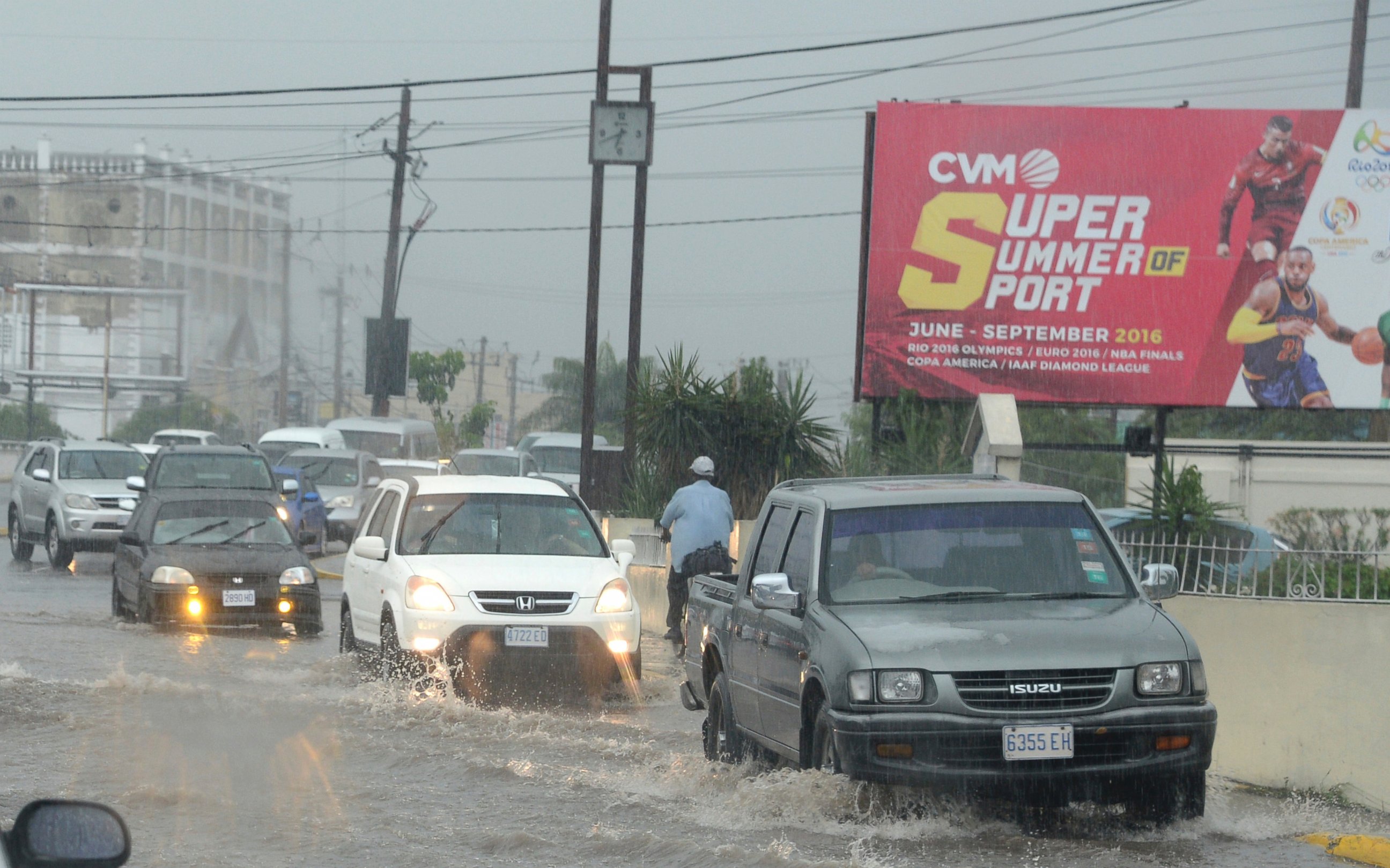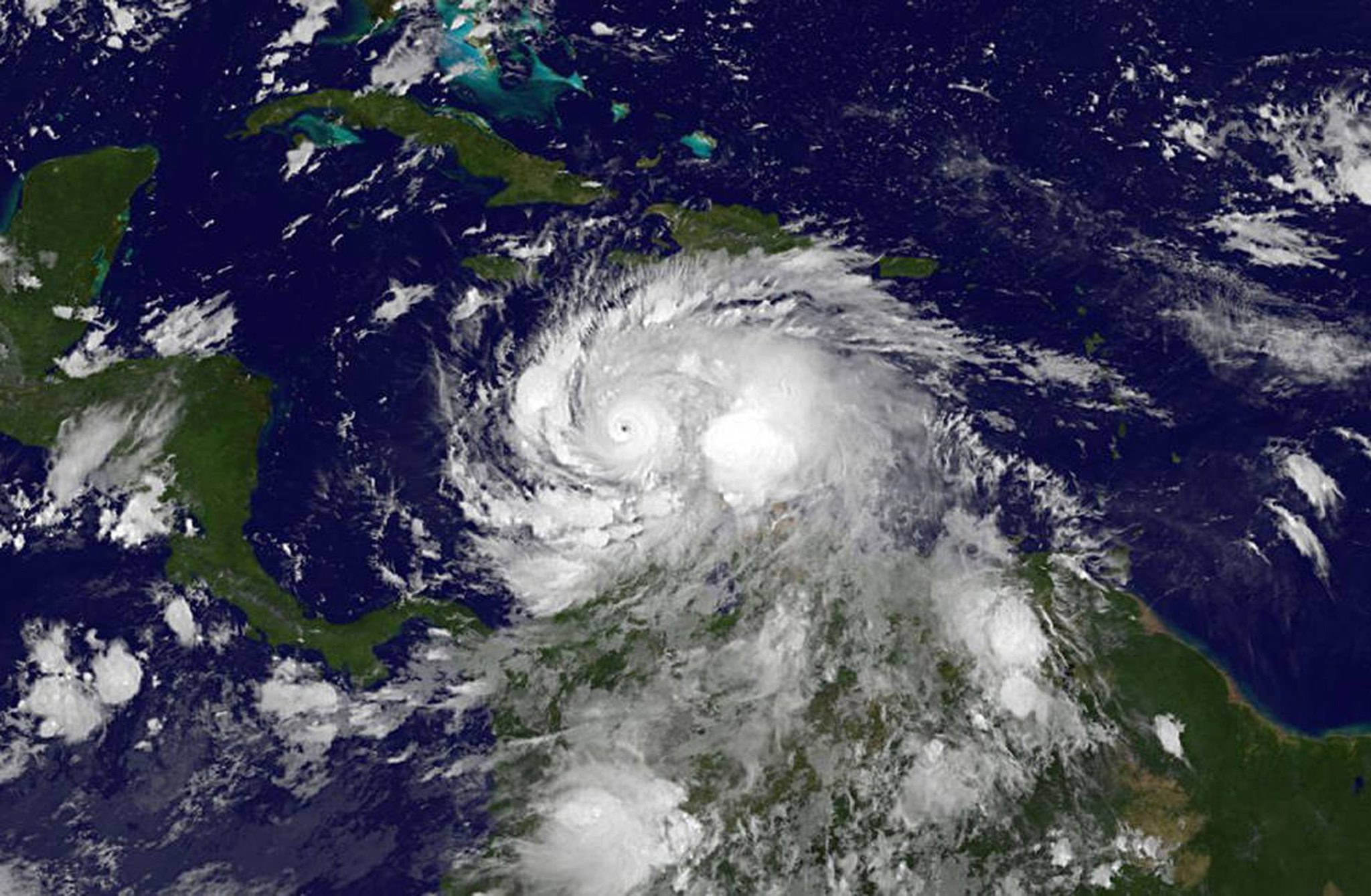Millions Brace for Hurricane Matthew's 'Life-Threatening' Floods in Parts of the Caribbean
The Category 4 hurricane has maximum sustained winds of 145 mph.
— -- The brunt of Hurricane Matthew's dangerous wind and rain is expected to strike several Caribbean countries tonight and Tuesday as the Category 4 hurricane heads toward Haiti, Cuba and Jamaica.
The hurricane, with maximum sustained winds of 145 mph, is expected to bring "life-threatening flash floods and mudslides," according to the National Hurricane Center.
According to the Associated Press, the outer bands of the storm were soaking Haiti Monday night. Officials pushed residents in a suburb of Port-au-Prince who lived near a river to seek shelter.
At least three people had died in the storm -- one in Colombia, one in St. Vincent and the Grenadines and a fisherman in the waters off Haiti. Another fisherman was missing there, the AP said.
Rainfall of up to 25 inches -- with isolated areas of 40 inches -- is forecast over the next two days across southern Haiti and parts of the southwestern Dominican Republic. As much as 12 inches of rain is expected in Cuba and parts of western Haiti, and up to 10 inches is forecast in eastern Jamaica, according to the National Hurricane Center.

Where Is Hurricane Matthew?
Hurricane Matthew was about 120 miles south of Tiburon, Haiti, and about 220 miles southwest of Port-au-Prince, Haiti, as of 8 p.m. ET Monday. The storm is crawling north at about 8 mph.
The hurricane is expected to approach southwestern Haiti tonight, possibly bringing catastrophic flash flooding.
Schools in Haiti are closed today and Tuesday as the country braces for Matthew's arrival. Government officials are urging residents to heed possible evacuation and preparation orders, especially in landslide-prone areas.
The U.S. Embassy in Port-au-Prince will also be closed today and Tuesday for routine appointments, and officials are advising all U.S. citizens in the country to shelter in place.
The National Hurricane Center warned that the hurricane is expected to "bring life-threatening" rain, wind and storm surge to portions of Haiti.
In Cuba, authorities evacuated about 700 spouses and children of service members at the U.S. Navy base at Guantanamo Bay, according to The Associated Press.
In Jamaica, government officials are making a strong appeal to residents in flood-prone areas, urging them to evacuate to shelters.
Hurricane-force winds extend 40 miles from the center of the storm, meaning catastrophic destruction is expected within 40 miles of the eye of the storm when it approaches land.
Hurricane Watches and Warning

Hurricane warnings are in effect for Jamaica, Haiti, parts of Cuba (including Guantanamo) and parts of central and southeastern Bahamas, according to the National Hurricane Center.
A hurricane watch is in effect for Turks and Caicos, northwestern Bahamas, and the Cuban province of Camaguey.
Tropical storm warnings and watches are in effect for parts of the Dominican Republic.
Will Hurricane Matthew Affect the U.S.?
It is too early to determine whether Matthew will affect the country and any impact is still nearly a week away, according to various models.
North Carolina Gov. Pat McCrory declared a state of emergency for 66 counties in his state in anticipation of Matthew striking Thursday night. The governor said he has been in contact with FEMA to prepare for the storm.
“I’m hoping this is a false alarm, but we can’t gamble," McCrory said.
A FEMA spokesperson said the storm is being monitored very closely, adding that FEMA is in touch with officials in potentially affected states.
“It’s too soon to know what impact, if any it, will have on the U.S, but we’re urging individuals to take advantage of the time they have right now to prepare,” the spokesperson said.
ABC News' J.J. Gallagher, Daniel Manzo, Samantha Wnek, Erin Dooley, and Melissa Griffin contributed to this report




